This manual covers the full range of communicable diseases in the African region: skin infections, malaria and other vector-borne diseases, infections transmitted via contaminated food and water, tuberculosis and leprosy, diseases transmitted through animals, haemorrhagic fevers and severe acute respiratory illnesses. In this new edition HIV/AIDS has been covered as a chapter on its own. The authors have also included a new chapter titled Emerging and Re-emerging infections in which diseases such as Rift valley fever, Avian flu and Ebola have been discussed. The target for this book include students in medical training colleges, community health workers, nurses, clinical officers, public health officers, teachers of health workers and indeed all who are interested in and who want to learn about communicable diseases in Africa.
COMMUNICABLE DISEASES 4th edition
KSh 3,000.00
This manual covers the full range of communicable diseases in the African region: skin infections, malaria and other vector-borne diseases, infections transmitted via contaminated food and water, tuberculosis and leprosy, diseases transmitted through animals, haemorrhagic fevers and severe acute respiratory illnesses. In this new edition HIV/AIDS has been covered as a chapter on its own. The authors have also included a new chapter titled Emerging and Re-emerging infections in which diseases such as Rift valley fever, Avian flu and Ebola have been discussed. The target for this book include students in medical training colleges, community health workers, nurses, clinical officers, public health officers, teachers of health workers and indeed all who are interested in and who want to learn about communicable diseases in Africa.
Related products
-
Study Guide for Foundations of Nursing, 9th Edition
KSh 7,280.00Reinforce your understanding of LPN/LVN nursing skills — and prepare for the NCLEX-PN® exam! Corresponding to the chapters in Foundations of Nursing, 9th Edition, this study guide provides a variety of exercises to help you review, practice, and apply nursing concepts and principles. Review questions make it easier to achieve the chapter objectives from the textbook, and critical thinking activities help you develop clinical judgment skills. Now with Next Generation NCLEX® (NGN)-style case studies and questions, this guide provides you with an effective study tool for the NGN exam.
-
Modern Blood Banking & Transfusion Practices Seventh Edition
KSh 12,460.00Join the generations of students who have embarked on successful careers with a firm foundation in the theory and practice of blood banking and transfusion practices. Denise Harmening’s classic text teaches you not only how to perform must-know tests and tasks, but to understand the scientific principles behind them.
You’ll begin with a review of the basic concepts of red blood cell and platelet preservation, genetics, immunology, and molecular biology. Then you’ll move to the hows and whys of clinical practice. And, you’ll be prepared for new advances in the field.
-
Rehabilitation Techniques for Sports Medicine and Athletic Training 7th Edition
KSh 17,850.00Rehabilitation Techniques for Sports Medicine and Athletic Training, Seventh Edition is the definitive reference for athletic training students and professionals who are interested in gaining more in-depth exposure to the theory and practical application of rehabilitation techniques used in a sports medicine environment.
Dr. William Prentice and his contributors have combined their knowledge and expertise to produce a single text that encompasses all aspects of sports medicine rehabilitation. Featuring more than 1,000 full-color illustrations, 700 high-resolution videos, and an integrated laboratory manual, this newly updated Seventh Edition provides the athletic trainer with a complete guide to the design, implementation, and supervision of rehabilitation programs for sport-related injuries.
The Seventh Edition includes new and updated information on topics including:
• Pharmacology and the role of medication in pain management and performance
• Nutrition and its impact on rehabilitation
• Rehabilitation techniques for the core
• Roles within the rehabilitation team
• Pathomechanics and epidemiology of common injuries
• Psychological considerations and communication with injured patients
• Tips for documentation from Dr. Prentice -
Pocket book of hospital care for children
KSh 3,640.00This is the second edition of the Pocket book of hospital care for children. It is for use by doctors, nurses and other health workers who are responsible for the care of young children at the first level referral hospitals. The Pocket Book is one of a series of documents and tools that support the Integrated Management of Childhood Illness (IMCI). It is an update of the 2005 edition, and presents up-to-date evidence based clinical guidelines from several recently updated and published WHO guidelines and recommendations. The guidelines are for use in both inpatient and outpatient care in hospitals with basic laboratory facilities and essential medicines. These guidelines focus on the management of the major causes of childhood mortality in most developing countries, such as newborn problems, pneumonia, diarrhoea, malaria, meningitis, septicaemia, measles and related conditions, severe acute malnutrition and paediatric HIV/AIDS. It also covers common procedures, patient monitoring and supportive care on the wards and some common surgical conditions that can be managed in small hospitals.
Details of the evidence on which the Pocket Book is based can be found on the WHO website from the relevant published guidelines provided in the bibliography. This bedside paediatric care guidelines are applicable in most areas of the world and may be adapted to suit country specific circumstances. However, advanced and high care treatment options, such as intensive care or mechanical ventilation, are not described. The Pocket Book is also available in hard copies although the online version will be updated regularly as new evidence emerges.
-
Medical Terminology: A Short Course, 9th Edition
KSh 11,100.00Build a working medical vocabulary quickly with Chabner’s Medical Terminology: A Short Course, 9th Edition! Omitting time-consuming, nonessential information, this text helps you master the basics of medical vocabulary — including the most frequently encountered suffixes, prefixes, and word roots. A text/workbook format lets you practice and interact with medical terminology on almost every page through exercises, labeling, and pronunciations. Case studies and real-world vignettes demonstrate how medical terms are used in practice. With all this plus medical animations, word games, and flash cards on the Evolve website, you’ll be amazed at how easily medical terminology becomes part of your vocabulary.
-
Applied Theories in Occupational Therapy 2nd Edition by Roseanna Tufano (Author), Marilyn B. Cole (Author)
KSh 11,000.00Applied Theories in Occupational Therapy: A Practical Approach, Second Edition provides a system-based, comprehensive overview of the theories, models, and frames of reference that influence occupational therapy around the world. Esteemed authors Marilyn B. Cole and Roseanna Tufano have updated their foundational text with an evidence-based focus derived from their experiences of more than 30 years teaching theoretical content to students.
Applied Theories in Occupational Therapy: A Practical Approach, Second Edition offers practical templates to help readers learn the key constructs of each theory and assimilate knowledge based on Mosey’s organizational structure. Each theory-based chapter is designed for ease in gathering content knowledge and comparing theories in a distinctive manner. The book includes:
- Summaries of the current trends found in practice, along with external influential models of health and wellness impacting populations of concern
- Exploration of some of the most common occupation-based models around the world. Each model’s holistic conceptual nature is described, including theoretical assumptions and practice guidelines for evaluation and intervention
- Reviews of common frames of reference found in evidence-based practice, which address the secondary and tertiary needs of common populations
In this Edition, learning activities and case-based analyses strengthen the application of theory into current practice contexts. Practical guidelines assist the reader in formulating an evaluation process and determining the relevant intervention strategies that promote occupational participation, engagement, and functioning across the lifespan and the continuum of health.
-
Nursing Foundation: Concepts and Perspectives
KSh 6,580.00The book under title ‘Nursing Foundation: Concepts and Perspectives’ has been written in lucid style, simple language and with goal-oriented outlook. It will help the students of undergraduate nursing programme at the post basic level which is a broad based education within an academic framework, to develop understanding of philosophy, objectives, responsibilities of nursing profession; to build upon the skills and competence acquired at the diploma level. It will orient them to the current concepts involved in practice of nursing and developments in nursing profession; direct to upgrade their critical thinking skills, competencies and standards required for practice of professional nursing and to follow nursing process. This book provides up-to-date information in accordance with the latest syllabus prescribed to them and they will be able to identify professional, ethical, and legal aspects of nursing profession, current trends in health and nursing and steps of nursing process. Each chapter deals with a specific aspect of foundation of nursing with complete clarity of expression, simplicity to exposition, intensive text and adequate illustrative material in the form of diagrams, flow charts and tables followed by key points, chapter end questions comprising of essay type questions, short answer questions and multiple choice questions at the end of each chapter. The chapters have been sequenced to facilitate ease and continuity in reading and understanding, and at the end of each chapter, related references have been given as suggested reading.
-
Children with Developmental Disabilities: A Training Guide for Parents, Teachers and Caregivers First Edition
KSh 6,370.00This manual is designed as a guide for parents, teachers and caregivers dealing with children up to the age of six who are afflicted by developmental disabilities. The author provides details of more than 400 non-formal activities along with guidelines on how to use them both at home and in pre-school settings.
The book is divided into three sections:
– the first describes a wide range of impairments, disabilities and handicaps along with information on their manifestations and characteristics. The author also outlines steps to handle negative or problem behaviour during training.
– the next section presents a Comprehensive Activity Checklist for pre-school children. All items have been empirically tested and are located on a scale of increasing difficulty.
– the third section comprises two chapters. The first is a `do-it-yourself` activity assistance guide which will be of immense use to trainers, caregivers, teachers and parents. In the last chapter, Dr Venkatesan discusses contemporary problems and issues related to the rights and privileges of persons with developmental disabilities

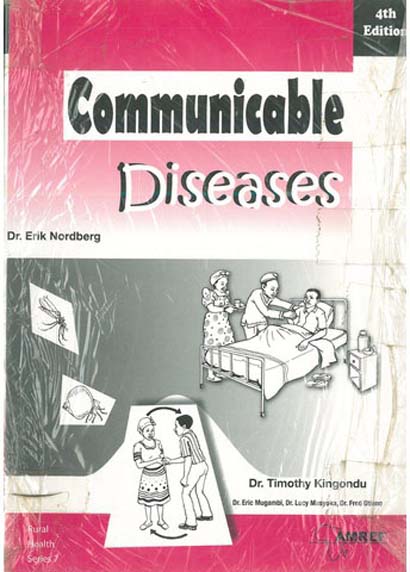
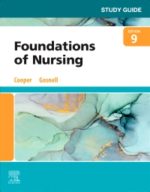
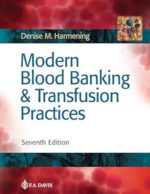

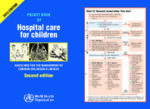
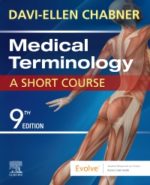
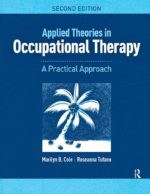
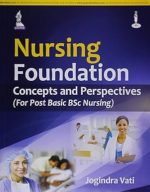
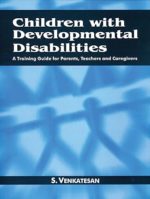
Be the first to review “COMMUNICABLE DISEASES 4th edition”